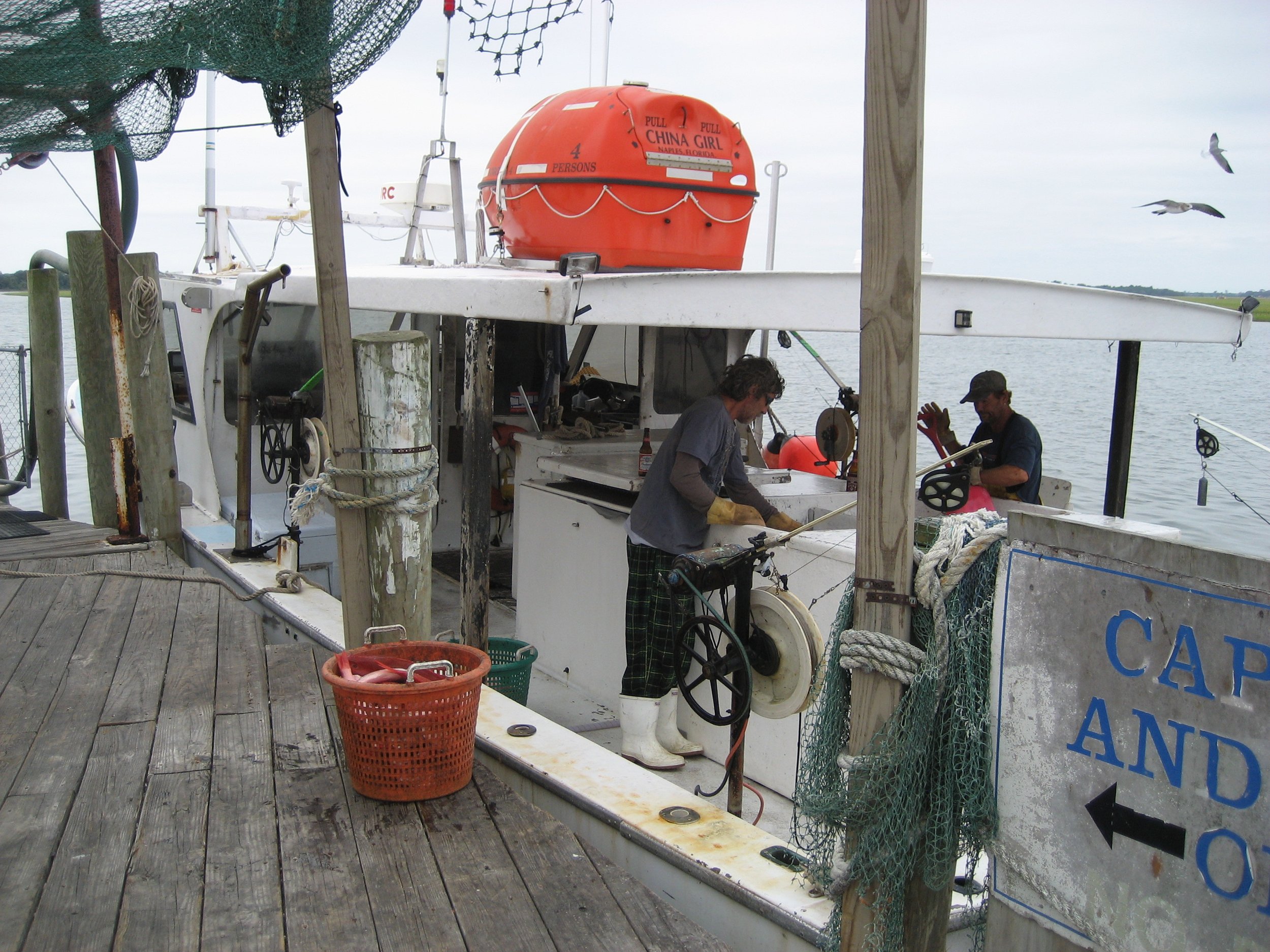North Myrtle Beach News Times
By Jessica Vaitis
Matt Ruby is a commercial fisherman from Little River. For 15 years he has supported his family through the snapper grouper fishery. Concerned with the new fishing limits, Ruby and other fishermen have been meeting in order to help preserve their occupations. A member of the South Atlantic Fishermen's Association, Ruby is different in that he expresses a different opinion than many of his fellows by supporting catch shares.
Vehemently protested by the majority of local fishermen with the slogan "Hell No Catch Shares", the management program based on catch shares is a relatively simple concept: each year, the number of fish to be caught is determined by the National Marine Fisheries Service and regional council. Once the number is determined fishermen may purchase a catch share, entitling them to a percentage of the fish. Ruby feels that it may be worth considering, at least for commercial fishermen.
"At this point, we do not need to take any fishery management option off the table, including catch shares, to ensure a future for the commercial snapper grouper fishery," stated Ruby. He agrees with his peers on many points, especially that fishermen should have substantial input in the design of management systems.
"I was glad to see in the paper last week that fishermen are organizing to change some of the fishing rules that are killing our livelihoods. However I'm concerned about the untrue information being spread about catch shares," said Ruby, contending with the association's stance.
Catch shares, they fear, will force many of the smaller fishing operations out of business. The potential that all the shares will go to the wealthiest operations is a major concern. Captain Keith Logan is a major opponent of catch shares, which he feels are designed to kill off fishermen. Some have said it is privatizing the ocean.
"We've already been privatized. Snapper grouper has been limited commercially for years and you had to buy two separate permits. There are around 700 permits left and if you don't own one you don't fish. Privatization is not new," argues Ruby. He stated that catch share programs can be designed to limit the amount of fish quota any one person can hold.
"Catch shares fishermen can restrict outside corporations and non-profits from holding quota and make sure that someone doesn't buy up quota and not use it," he said. A major concern was that environmental groups or large corporations would purchase the catch shares so that no one could fish.
"It pushes us about as far into the accountability corner. It would really make it hard for the fishery management councils to close our seasons and take our fishing when the data is right there and we've been accountable and responsible," said Ruby. A major point of contention for the fishermen has been about the numbers and data collection used by the council, something Ruby feels could be avoided.
"I've talked with fishermen from Alaska, New England, British Columbia and the Gulf of Mexico about the improvements to their fishery. Given the option between catch shares and the old way of management none of these fishermen said they would go back to the old way of fishing," said Ruby.
However, many in the fishing community cite those fisheries as failures, citing reductions in fleets and fishermen. The Alaskan king crab fishery, for instance, lost two thirds of their fleet and crew members shares of the catch have dropped from 50 percent to 30 percent in four years. Ruby does not deny that it will hurt some of the fishermen.
"It will hurt some people especially with the initial allocations. You get into a business like this and you know the risks, you know that you might have to change things," said Ruby, "Some of the older guys purchased their permits with the snapper grouper fishery for $25. When I came here and started they were $10,000. I spent $40,000 on permits alone to get in. I don't like to hear people complaining that catch shares are unfair."
Both parties are in agreement that the current management system is ineffective and that something must be done in order to preserve fishing.
"Current management, seasons and other limits, it's killing us and it's just going to get worse. We have to think about fishing differently and explore solutions like catch shares. If we're going to keep fishing we're going to have to do something different."
Read the full story online: http://www.nmbtimes.com/nm/publish/news_515.html










